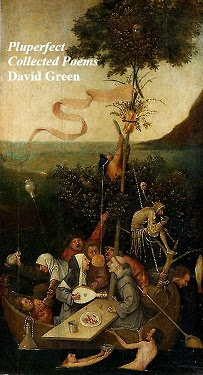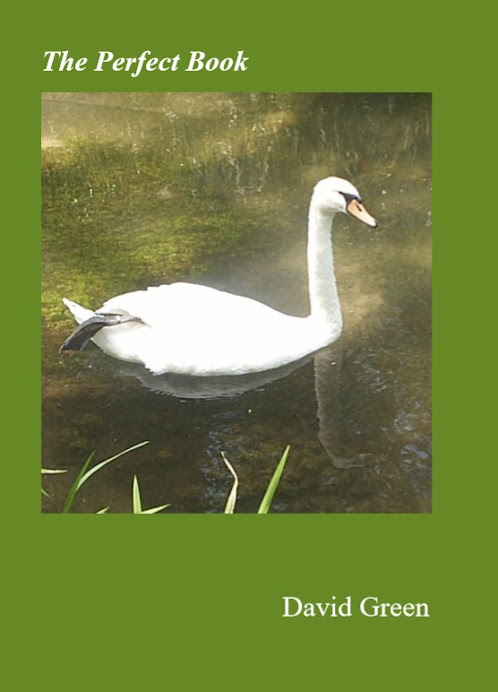My listening pleasure was enhancecd recently by an evening on Radio 4 Extra that consisted of vintage game shows. Wilfred Pickles was the genial host on the most popular entertainments of their day but my interest was more stimulated by Gilbert Harding who I had rarely if ever heard in action other than the television interview with John Freeman when the seemingly dry, old stick was reduced to tears.
He seemed quite personable in the episode of
Twenty Questions that I heard and so I looked him up further and found not only this book but that a tabloid newspaper had once described him as 'the rudest man in Britain', though clearly in an age when the title was more easily achieved.
I try to review books within a reasonable time after their publication on this website and so I make an exception here for his reflections in
Master of None (1958). In it, by way of offering, or declining to offer, advice to aspirant careerists, he surveys the world from the point of view of his experience. It is neither a lifestyle guide nor a biography but, in the manner of such a work from a very different time, he seems most sensible and if it was in any way curmudgeonly then, the world must have caught up with him since, because he is the most humane and dignified of commentators here and I find myself approximately 97% in agreement with him, our personalities coinciding on many points, not the least of which, in the chapter on 'The Boss',
I am temperamentally most unfitted for being a boss and, by temper, a most unsuitable, most unsatisfactory, subordinate.
So I must remember that if and when the time comes again that I am in search of paid employment I must remove this posting in case a prospective employer googles me to augment their understanding of the quality of my candidature for the vacancy they wish to fill.
As you might expect of such a document, it highlights just how much has changed but also how much remains the same from the time when I was born.
Another recent purchase that is providing great pleasure, although of an entirely different timbre, is also not a new release. The Fitzwilliam Quartet's box set of the Shostakovich String Quartets is a wonderful account of a series that could arguably be put alongside such canonical 'sequences' (I wish I could find a better word than that) as the Beethoven symphonies, the Bach cantatas, the Mozart operas or the Handel oratorios. They aren't quite a career-spanning account of Shostakovich's life because no. 1 here is from 1938, after the fifth symphony - for which I thank the booklet for pointing out- but they progress from quite free exuberance, through the darkness of war to a solemnity that is profound but always musically inventive. Shostakovich was a teenage hero of mine with nos. 3 and 8 here regularly played on casssette tapes but his stature has only increased for me in recent years with the
Preludes and Fugues another tremendous exhibition of his varied musicality and I would dare to shortlist him on a very short list of the greatest of C20th composers.
The Fitzwilliam set is very fairly priced although considerably more expensive than the Brodsky's release of the Complete Quartets. For one as parsimonious, or at least as appreciative of a bargain, as I, it was hard to pass over a significant saving but the reviews of the two sets were convincing enough and I'm sure I've done the right thing because this is superb. One amateur reviewer on Amazon was suspicious of the Brodskys for listing their tailor as their fifth member but their doubts were supported by other comments about the recordings.
I hope the Brodskys aren't only about plush image and sartorial concerns because they are the highlight of the Portsmouth Fesivities this year and I am booked in at the Cathedral,
http://www.portsmouthfestivities.co.uk/the-wheel-of-4tunes-the-brodsky-quartet/#more-1966. But I see that Shostakovich Quartet no.3 is on their wheel of lucky dip repertoire so I'll be hoping to be able to see if they can play it or not.
In a year that has so far offered less than the last few in 'must see' events or 'must read' books for me, my list of possibles for the Proms hasn't amounted to many either but, you never know, and I have made a note of
Judas Maccabeus on July 19th in the Albert Hall and Roger Norrington with some French baroque in the Cadogan Hall on 28th. At least the first of these is outside of the Olympic Games period when I was planning not to be anywhere near London. Travelling the Circle line packed in among the world's finest athletes one might be in danger of catching steroids. But I won't be too Hardingesque if I can help it about this unaffordable commercial jamboree. I might even enjoy some of it but at present Mark Cavendish winning the bicycle riding event and Usain Bolt finally running all the way to the line to set new figures for the 100 metres are the only two things I'm really looking forward to. Of course it would be good if that nice girl Jessica could do well, too.
I only chanced upon finding that James Shapiro has a three-part series on Shakespeare on BBC4
, The King & the Playwright: a Jacobean History, continuing on from where his book on 1599 had roughly left us. It is surely well worth seeing and episode one was good for its background on the sources of
Lear and some long overdue recognition of
Timon of Athens. The fact that only stills were used from the Globe production of
Timon suggests that it was never filmed but it was a memorable event.
I'm afraid that, somewhat perversely, my interest in Shakespeare in recent years has been more directed at the unwinnable debate on speculation on Shakespeare's life which realistically can only revolve around discrediting the speculations of others. In this programme, the mainly admirable Prof. Shapiro re-enacted a walk he told us Shakespeare would have made from Silver Street to a bookstall where he would have found the source material for
Lear. He gave the impression that he was in Silver Street, which he couldn't have been because it isn't there. He also might have made it sound as if Shakespeare's plays were produced in our modern day Globe when he said 'here' while standing in it. Such casual remarks give the impression that we know more than we do and also give the pedant the opprtunity to pick fault . The beauty of it is that we are thus allowed to imagine but we are not allowed to pass off our imaginings as fact, which is a failing of almost every Shakespeare biographer.
But at least we are fairly sure that Shakespeare wrote
Timon with Thomas Middleton and this was convincingly established. So, no, Shakespeare didn't write all of
Shakespeare but that doesn't mean that anybody else wrote all of it. It only means that he collaborated with others from time to time, which as professional play writers, they were bound to do. They were somewhat less precious than we are now about attribution as long as they got paid. The programme made much of the increasingly dark themes in the plays of the 1600's. And so it will come as some surprise in the final programme, one imagines, that the last plays are suddenly full of reconciliation, magic and resolution in a completely new sort of play. Unless, of course, we think that a new, indoor theatre had been opened for which a new sort of play was written and, more than likely a new collaborator was brought in. Like John Fletcher or Philip Massinger. But I don't know. I just imagine.




















